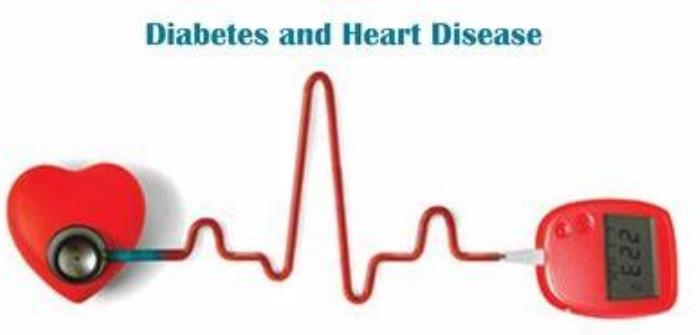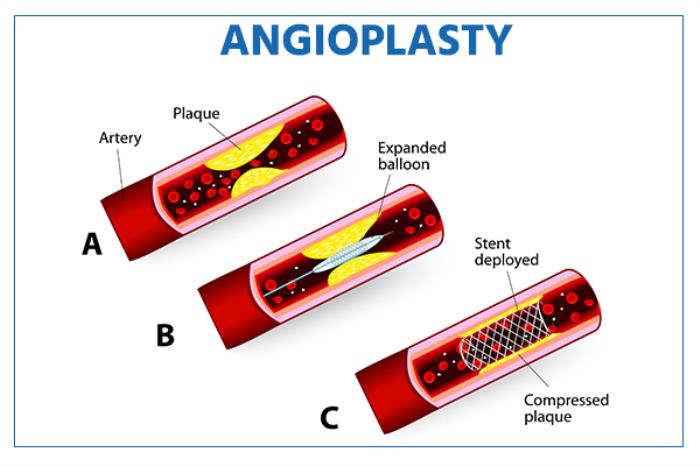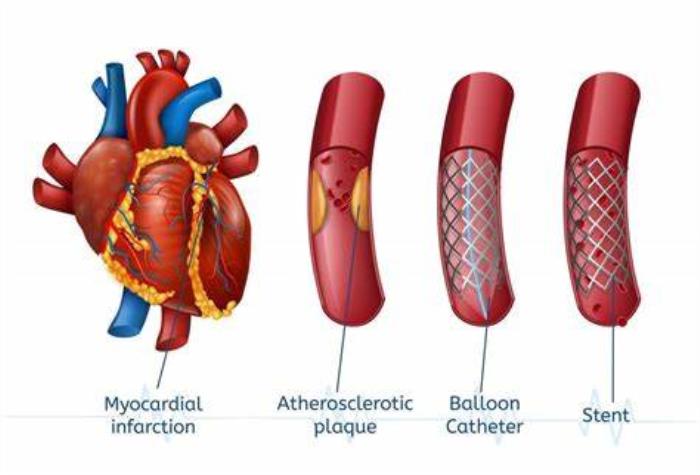Diabetes and heart health are closely intertwined, with diabetes significantly increasing the risk of cardiovascular diseases. Individuals with diabetes often experience changes in blood vessels and cholesterol levels that contribute to the development of atherosclerosis, a condition characterized by the buildup of plaque in the arteries. As a result, people with diabetes are more likely to encounter various heart-related issues, including coronary artery disease. Understanding this connection is essential for effective management and prevention strategies in diabetic patients.
Understanding Angioplasty: A Brief Overview
Angioplasty is a minimally invasive procedure used to treat narrowed or blocked coronary arteries, thereby improving blood flow to the heart. The procedure typically involves inserting a catheter with a balloon at its tip into the affected artery. Once the catheter reaches the blockage, the balloon is inflated, compressing the plaque against the artery walls and widening the artery. In many cases, a stent is also placed to help keep the artery open after the procedure. Angioplasty can effectively alleviate symptoms of coronary artery disease, such as chest pain and shortness of breath, and is often performed on patients with significant blockages.
How Diabetes Affects Cardiovascular Health
Diabetes adversely affects cardiovascular health in several ways. Elevated blood glucose levels can damage blood vessels and nerves that control the heart, leading to complications such as hypertension and dyslipidemia. Diabetic patients often experience increased levels of LDL cholesterol and triglycerides, which contribute to the formation of arterial plaque. Additionally, diabetes is associated with a higher prevalence of atherosclerosis, which narrows arteries and can lead to heart attacks or strokes. Consequently, managing diabetes is crucial for maintaining heart health and preventing cardiovascular complications.

The Increased Risk of Heart Disease in Diabetic Patients
Diabetic patients face a significantly higher risk of developing heart disease compared to non-diabetic individuals. Studies indicate that adults with diabetes are two to four times more likely to suffer from heart disease and stroke. The increased risk is largely due to the adverse effects of high blood sugar levels on blood vessels, which promote inflammation, plaque buildup, and impaired blood flow. Additionally, coexisting conditions such as obesity and hypertension, which are common among individuals with diabetes, further elevate the risk of cardiovascular disease, necessitating proactive monitoring and management.
Why Angioplasty May Be Necessary for Diabetic Patients
For diabetic patients, angioplasty may become necessary when significant blockages in the coronary arteries are identified. The presence of diabetes often accelerates the progression of coronary artery disease, leading to more severe blockages and increased symptoms. Angioplasty can provide immediate relief from chest pain and improve blood flow to the heart, thus reducing the risk of heart attacks. Furthermore, it can enhance the quality of life for diabetic patients by allowing them to engage in daily activities without the limitations imposed by cardiovascular issues.
Preparing for Angioplasty: Considerations for Diabetic Patients
Preparing for angioplasty involves several important considerations for diabetic patients. First and foremost, it is crucial to have well-controlled blood glucose levels prior to the procedure, as uncontrolled diabetes can increase the risk of complications during and after angioplasty. Patients should also discuss their medications with their healthcare team, as certain medications may need to be adjusted before the procedure. Additionally, preoperative assessments, including blood tests and imaging studies, are essential to evaluate heart function and overall health. Finally, a comprehensive plan for postoperative care, including monitoring blood sugar levels and lifestyle modifications, is vital to ensure a successful recovery.

Managing Blood Sugar Levels Before and After Angioplasty
Effective management of blood sugar levels before and after angioplasty is crucial for optimizing outcomes in diabetic patients. Pre-procedure, it’s important to achieve stable glucose levels to minimize complications during surgery. Postoperatively, continuous monitoring of blood sugar can help prevent infections and promote healing.
The Impact of Diabetes on Angioplasty Outcomes
Diabetes can significantly influence the outcomes of angioplasty procedures. Diabetic patients may face higher risks of complications such as restenosis, or re-narrowing of arteries, due to underlying insulin resistance and vascular issues. Understanding these risks can help guide management strategies.
Post-Angioplasty Care: Monitoring for Diabetic Patients
After angioplasty, diabetic patients need careful monitoring to manage blood glucose levels and assess the success of the procedure. Regular follow-up appointments are essential to evaluate heart function and the effectiveness of lifestyle adjustments.
Dietary Recommendations for Diabetics After Angioplasty
Diet plays a vital role in recovery for diabetic patients post-angioplasty. Emphasizing a balanced diet rich in whole grains, lean proteins, fruits, and vegetables can help regulate blood sugar levels and support heart health. Reducing intake of processed foods and sugars is also critical.

The Role of Exercise in Recovery for Diabetic Patients
Exercise is an important component of recovery for diabetic patients following angioplasty. Regular physical activity can enhance cardiovascular health, improve insulin sensitivity, and contribute to weight management, all of which are essential for long-term success.
Medications: What Diabetic Patients Should Know Post-Angioplasty
Diabetic patients should be aware of the medications prescribed after angioplasty. This may include antiplatelet drugs to prevent blood clots and medications to manage blood sugar levels. Understanding these medications and their interactions is crucial for effective management.
Recognizing Symptoms of Complications After Angioplasty
Diabetic patients should be vigilant in recognizing symptoms of complications post-angioplasty. Signs such as increased pain, swelling, fever, or unusual bleeding should prompt immediate communication with healthcare providers to prevent further issues.
Importance of Regular Follow-Ups for Diabetic Patients
Regular follow-up appointments are essential for diabetic patients after angioplasty. These visits allow healthcare providers to monitor heart health, adjust medications as needed, and ensure that blood sugar levels remain stable, ultimately improving long-term outcomes.
Lifestyle Changes to Improve Heart Health in Diabetics
Making lifestyle changes is critical for diabetic patients to enhance heart health after angioplasty. This includes adopting a heart-healthy diet, engaging in regular physical activity, managing stress, and avoiding tobacco products, all of which contribute to better overall health.
Understanding the Connection Between Insulin Resistance and Heart Disease
Insulin resistance plays a significant role in the development of heart disease, particularly in diabetic patients. By improving insulin sensitivity through lifestyle changes and medications, patients can reduce their risk of cardiovascular complications.
Patient Stories: Experiences of Diabetics Undergoing Angioplasty
Hearing from other diabetic patients who have undergone angioplasty can provide valuable insights and encouragement. Patient stories often highlight the importance of adherence to treatment plans, lifestyle changes, and the support of healthcare teams.
Research Insights: Angioplasty Outcomes in Diabetic Patients
Research continues to provide insights into the specific outcomes of angioplasty in diabetic patients. Understanding these findings can inform better management strategies and treatment protocols tailored to this population.
How to Communicate Effectively with Your Healthcare Team
Effective communication with healthcare providers is essential for diabetic patients before and after angioplasty. Patients should feel empowered to ask questions, express concerns, and discuss any difficulties they may encounter with their treatment or recovery.
Exploring the Latest Research in Coronary Angioplasty
Stay updated with the latest advancements in coronary angioplasty research. This section reviews recent studies, emerging technologies, and evolving practices that are shaping the future of angioplasty, aiming to improve patient outcomes and procedural success rates.
Connection Between Cholesterol Levels and Heart Disease
Understand the critical link between cholesterol levels and heart disease. This section explains how high cholesterol contributes to the development of cardiovascular conditions and discusses strategies for managing cholesterol to promote heart health and reduce the risk of disease.
Conclusion: Empowering Diabetic Patients in Angioplasty Care
Empowering diabetic patients in their angioplasty care involves education, support, and active participation in their treatment plans. By understanding their condition and the implications of their surgery, patients can make informed decisions that enhance their health and quality of life.
Best Coronary Angioplasty in India
The Best Coronary Angioplasty in India is a minimally invasive procedure that helps restore blood flow to the heart by widening blocked arteries, improving cardiovascular health and reducing chest pain.
Best Coronary Angioplasty Hospitals in India
The best coronary angioplasty hospitals in india offer state-of-the-art facilities and highly skilled cardiology teams, ensuring comprehensive pre- and post-operative care for effective treatment outcomes.
Coronary Angioplasty Cost in India
The coronary angioplasty cost in india is affordable, with transparent pricing and flexible options, making high-quality cardiovascular care accessible for patients.
Best Coronary Angioplasty Surgeons in India
The Best Coronary Angioplasty Surgeons in India are experienced specialists in interventional cardiology, dedicated to providing personalized and effective treatment for each patient.
FAQ
How does diabetes increase the need for angioplasty?
Diabetes can lead to a higher risk of atherosclerosis and cardiovascular disease, necessitating interventions like angioplasty to restore blood flow.
What should diabetic patients do to prepare for angioplasty?
Patients should manage their blood sugar levels, follow dietary recommendations, and discuss any medications with their healthcare team before the procedure.
How can diabetes affect recovery after angioplasty?
Diabetes can slow healing and increase the risk of complications, making close monitoring and management essential during recovery.
What lifestyle changes can help improve heart health for diabetics?
Adopting a balanced diet, increasing physical activity, managing stress, and avoiding tobacco can significantly enhance heart health in diabetics.
Are there specific medications that diabetics should be aware of post-angioplasty?
Yes, diabetic patients may need antiplatelet medications to prevent clotting and medications to control blood sugar levels after angioplasty.
Explore the Best Heart Care Resources in India
Find some of the top cardiologist, surgeons and the best heart hospitals in India
Best Heart Hospitals in India
Choosing the right hospital is crucial for successful heart treatments. If you want to explore trusted options, check the list of Best Heart Hospitals in India offering world-class facilities, advanced cardiac care units, and experienced teams for both simple and complex procedures.
Best Cardiologists in India
Finding the right cardiologist can make a huge difference in early diagnosis and long-term heart health. If you are looking for the Best Cardiologists in India, see this curated list of experts who specialize in preventive care, interventional cardiology, and complex heart disease management. Check the full list Best Cardiologists in India.
Best Cardiac Surgeons in India
If you are planning for heart surgery and need top-level expertise, we recommend exploring the Best Cardiac Surgeons in India. These surgeons have a proven record in performing bypass surgeries, valve replacements, and minimally invasive heart operations with excellent outcomes.